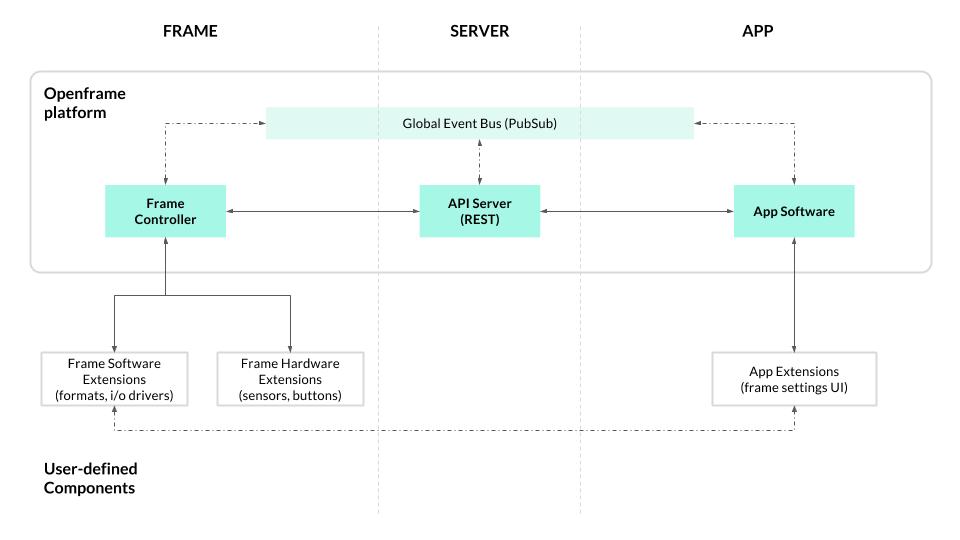The Openframe API server.
Note: This repo is under active development. The API is likely to change.
This version of the API Server is built on loopback. The idea is to work towards a data model which supports the basic goals of Openframe, guided by a handful of pilot use cases.
At present, the API provides a basic RESTful interface to the data model. It represents the API Server (REST) in the diagram below. The Global Event Bus lives in a separate repository, Openframe-PubSubServer.
The block diagram above represents a proposed architecture for the Openframe platform. It will continue to evolve as development on the project progresses.
This package provides a cli which can be used to start up a server. Install the package with npm, and run openframe-apiserver to start it.
$ sudo npm install -g openframe-apiserver
# start the server...
$ openframe-apiserverFor DEBUG output, set the DEBUG env var:
# output ALL debug (includes a lot due to loopback)
$ DEBUG=* openframe-apiserver
# output openframe-specific debug
$ DEBUG=openframe:* openframe-apiserverIf you're not running an instance of the pubsub server separately, you can start up an instance of that concurrently by passing the -p parameter.
# start the API server and PubSub server
$ openframe-apiserver -pVarious configuration options can be set using a .env file using the -f flag. An example .env file might specify the port on which to expose the API server, configure the datasource, and specify a host and port on which the API server can expect to find the pubsub server. Take a look at the .env.example file in the project root.
# in .env file...
PORT=1234
# indicate how the API server should connect to the pubsub server
PS_HOST='pubsub.openframe.io'
PS_PORT=2345
The codebase was largely written following the loopback docs' recommendations and examples. By default the API server will use an in-memory data store and will generate some dummy data (a few users, a few artworks). To run locally, clone the repo, install the npm dependencies, and run npm start.
# (you'll probably fork the repo, and clone your fork)
$ git clone https://github.com/OpenframeProject/Openframe-APIServer.git
$ cd Openframe-APIServer
$ npm install
$ npm startThis repo includes the pubsub server as a dependency. Running npm start will spin up an instance of the pubsub server on port 8889. If you want to start only the API, run npm run start-api. Likewise, if you want to run only the pubsub server, run npm run start-pubsub.
Loopback provides auto-generated documentation (via swagger) based on the data model definitions. After starting up the server locally, visit localhost:8888/explorer/ to view the docs and test out the API.
The code in this project is licensed under the GNU AGPLv3, a copyleft license that promotes server-based software freedom. For me info, see the description here, or take a look at the LICENSE included in the repo.
